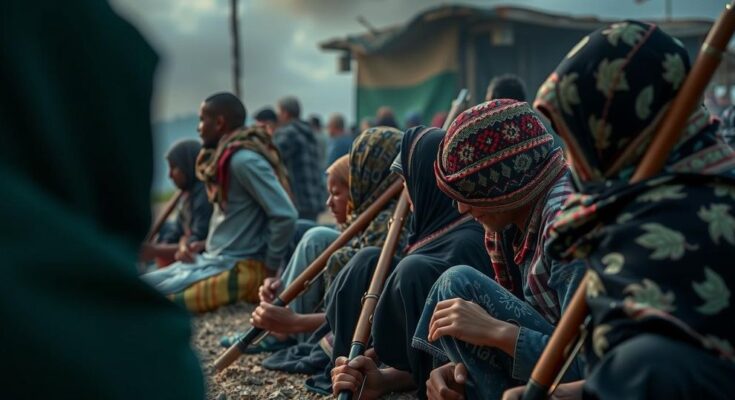Kenya has confirmed the repatriation of four Turkish refugees at Turkey’s request, assuring their dignified treatment; however, Amnesty International condemned the act as a breach of refugee laws, highlighting the risks those refugees face upon return to Turkey.
Kenya has officially acknowledged the capture and repatriation of four Turkish nationals who had sought refuge within its borders. This action was executed following a formal request from the Government of Turkey, as confirmed by Dr. Korir Sing’oei, the Principal Secretary in the Ministry of Foreign Affairs. The repatriation took place on Friday, with the individuals identified as Alparslan Taşçı, Mustafa Genç, Huseyin Yesilsa, and Öztürk Uzun being transported from Nairobi. Dr. Sing’oei stated that the Turkish authorities had assured Kenya of the dignified treatment of the repatriated nationals in accordance with both national and international laws. He expressed that this decision was grounded in the historical and strategic ties between Kenya and Turkey and emphasized the government’s commitment to confidentiality regarding the case until an internal review process is concluded. Moreover, Dr. Sing’oei reaffirmed Kenya’s dedication to safeguarding the rights and welfare of the over 780,000 refugees currently residing in the country. In opposition to these actions, Amnesty International has condemned the repatriation, labeling it a violation of Kenyan and international refugee laws. The organization noted that the refugees had sought state protection and warned against the potential risks of human rights violations they may face upon return to Turkey. Amnesty International’s concerns extend to the underlying dangers associated with the forced repatriation of refugees and the principle of non-refoulement, which prohibits returning individuals to a country where they are likely to face persecution. Yasin Yakut, representing a local organization, echoed concerns regarding the safety of the repatriated individuals, highlighting their status as recognized refugees under the United Nations. The incident has also prompted an official complaint of abduction submitted to the Kileleshwa Police Station.
The actions of Kenya in capturing and repatriating Turkish refugees underscore the complexities surrounding refugee protection and state sovereignty. Kenya has historically been viewed as a safe haven for refugees, including many from war-torn regions or oppressive regimes. However, the decision to repatriate individuals who sought asylum raises critical questions about the sanctity of asylum rights and the obligations of states under international laws such as the 1951 Refugee Convention and the African Union’s refugee protocols. Additionally, this incident highlights ongoing concerns regarding the treatment of refugees in various host countries, particularly as political relations between origin countries and host nations influence the safety and rights of displaced individuals. As such, Kenya’s latest development shines a light on the broader global discourse surrounding refugee rights, protection mechanisms, and international law adherence.
In conclusion, Kenya’s recent actions to repatriate four Turkish refugees have sparked significant debate regarding the implications for refugee rights both nationally and internationally. While the Kenyan government has assured the public of its commitment to safeguarding the rights of refugees, organizations like Amnesty International have raised alarms regarding potential violations of international law. The situation reflects the delicate balance that nations must navigate between diplomatic relations and humanitarian obligations, emphasizing the critical need for continued vigilance in protecting vulnerable populations against unlawful actions.
Original Source: nation.africa



